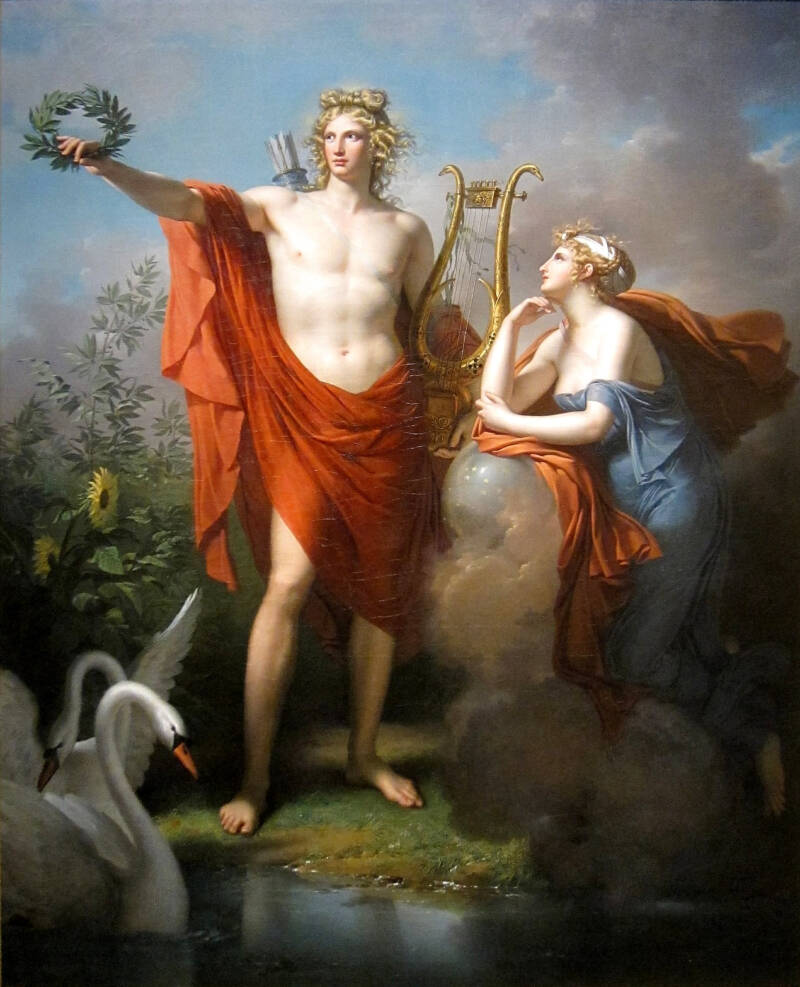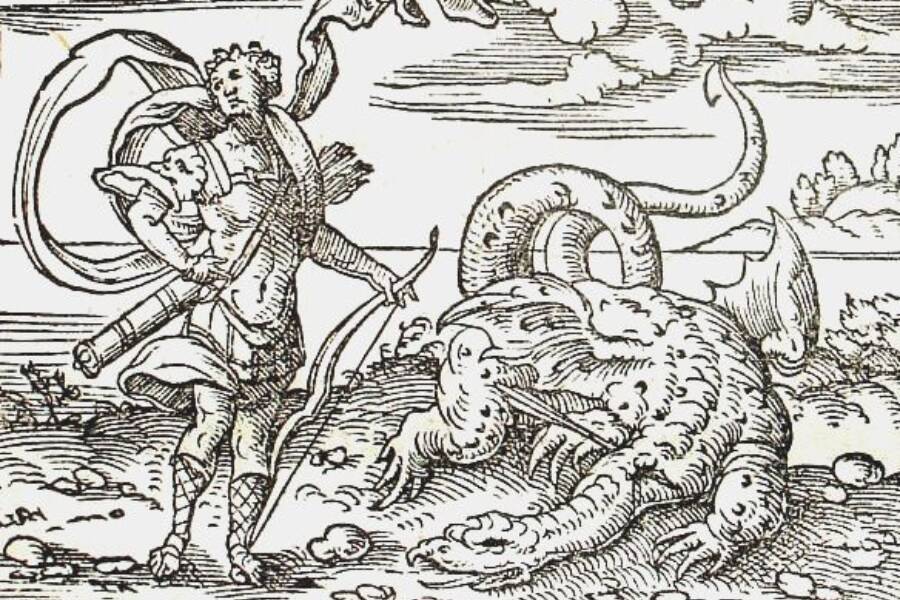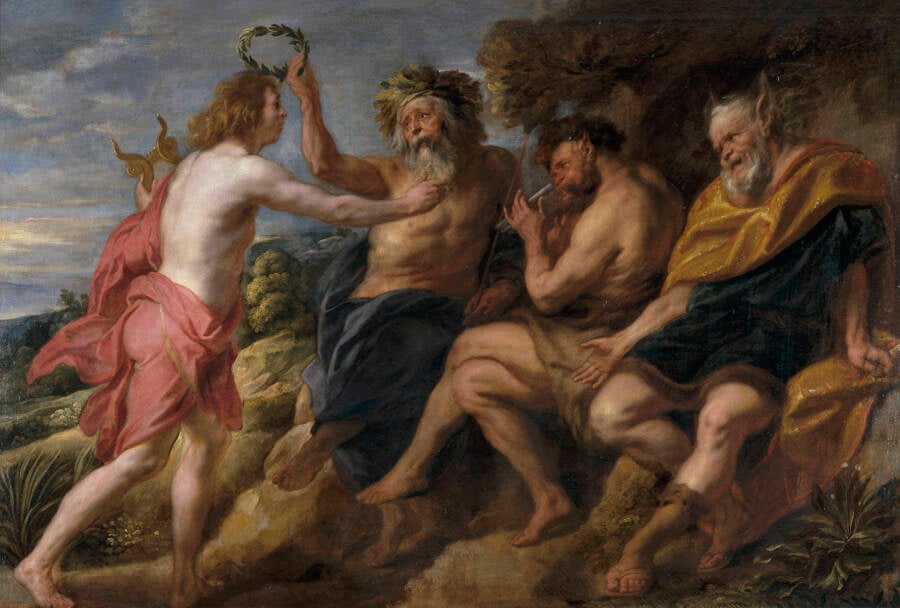12 Olympian Gods Of Ancient Greece: Apollo, Deity Of Light And Truth

Public DomainApollo, the Greek god of light, eloquence, and poetry alongside Urania, the Muse of astronomy.
One of the most widely beloved of all the Greek gods of the Olympian pantheon, Apollo oversees the domains of light, music, prophecy, and healing.
Born on the mythical island of Delos to Zeus and the Titan Leto, his arrival was fraught with difficulty, once again due to Hera’s jealousy. Hera forbade Leto from giving birth on terra firma, driving her to the floating island, where Apollo and his twin sister Artemis were born under safe harbors.
From his first days, Apollo was destined to be a figure of immense influence and power. As a young god, he ventured to Delphi, a site that would become synonymous with his name. Here, he established his oracle by slaying Python, a primordial serpent that guarded the site.

Wikimedia CommonsThe Greek god Apollo killing the monstrous Python.
With Python defeated, Apollo claimed the sacred ground, and Delphi grew to be the most revered oracular site in the ancient world, where Apollo communicated divine prophecy through the Pythia, the priestess of his temple.
Apollo’s persona, like that of many other Greek gods, was multifaceted — while he brought plague with his arrows during the Trojan War, he also offered the soothing balm of healing and purification. He was the leader of the Muses, the patron of music and the arts, and he played the lyre with such perfection that even the gods were moved by his melodies.
His musical contests with Marsyas, a satyr who dared challenge him, and Pan, the god of the wild, are equally legendary — testaments to Apollo’s deific musical talents.

Public DomainApollo as Victor over Pan by Jacob Jordaens, 1638.
As expected of a Greek god and one of the 12 Olympians, Apollo’s romantic pursuits were numerous, yet often wound up in tragedy and misfortune. Daphne, a nymph who preferred chastity, fled from his advances, and upon her desperate plea, was transformed into a laurel tree, which Apollo thereafter adopted as his sacred emblem.
Apollo also shared a deep bond with the youthful Hyacinthus, and the two would often hunt together and engage in athletic competitions. However, during a match of discus, Apollo tossed the discus with great strength, and when Hyacinthus went to catch it, it struck him in on the head, killing him.

Public DomainThe Death of Hyacinthos by Jean Broc (1801).
Apollo, overcome with sorrow, attempted to save Hyacinthus, to no avail. To honor his lost love, Apollo transform Hyacinthus’ blood into a flower, the hyacinth.
In addition to his revered oracle at Delphi, there were other significant sites of worship to Apollo, including a sanctuary and major religious center on Delos and a grand temple in Didyma in modern-day Türkiye that’s adorned with carvings of everything from griffins to the Gorgon Medusa. This site stands today as one of the best preserved and most impressive of all temples dedicated to any of the 12 Olympian Greek gods.
Every four years, the Pythian Games were held in Apollo’s honor at Delphi, which likewise consisted of musical, athletic, and poetic competitions. There was also the festival of Thargelia, an Athenian festival marking Apollo’s birthday which featured purifications, offerings of his fruits, and choral performances, and the festival of Hyacinthia in Sparta, held in honor of Apollo’s beloved Hyacinthus.





